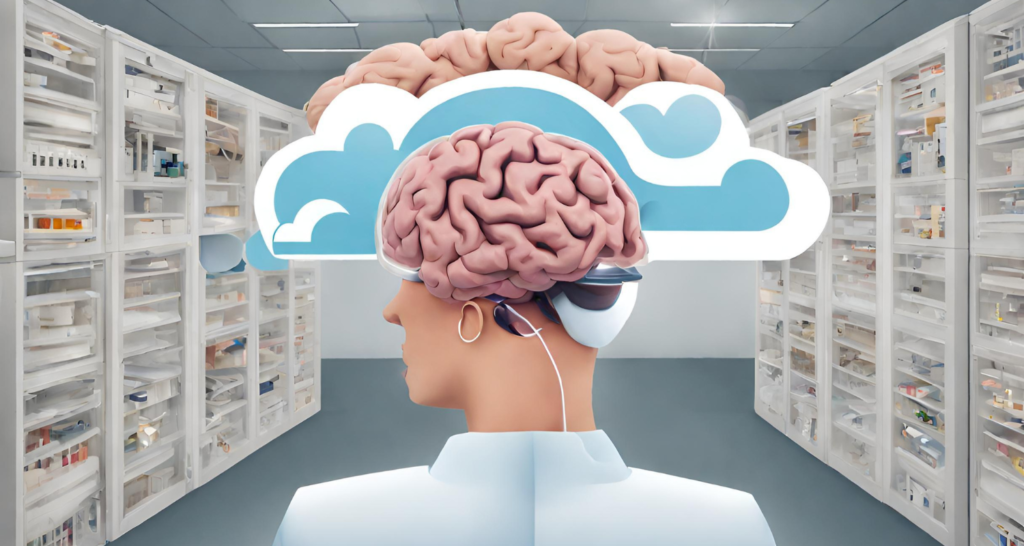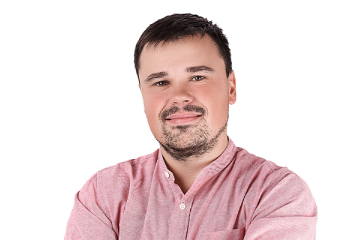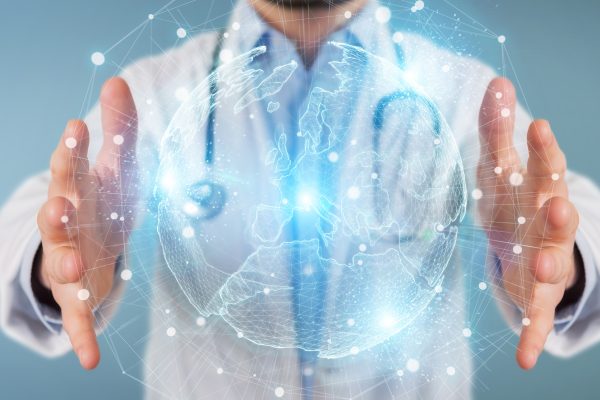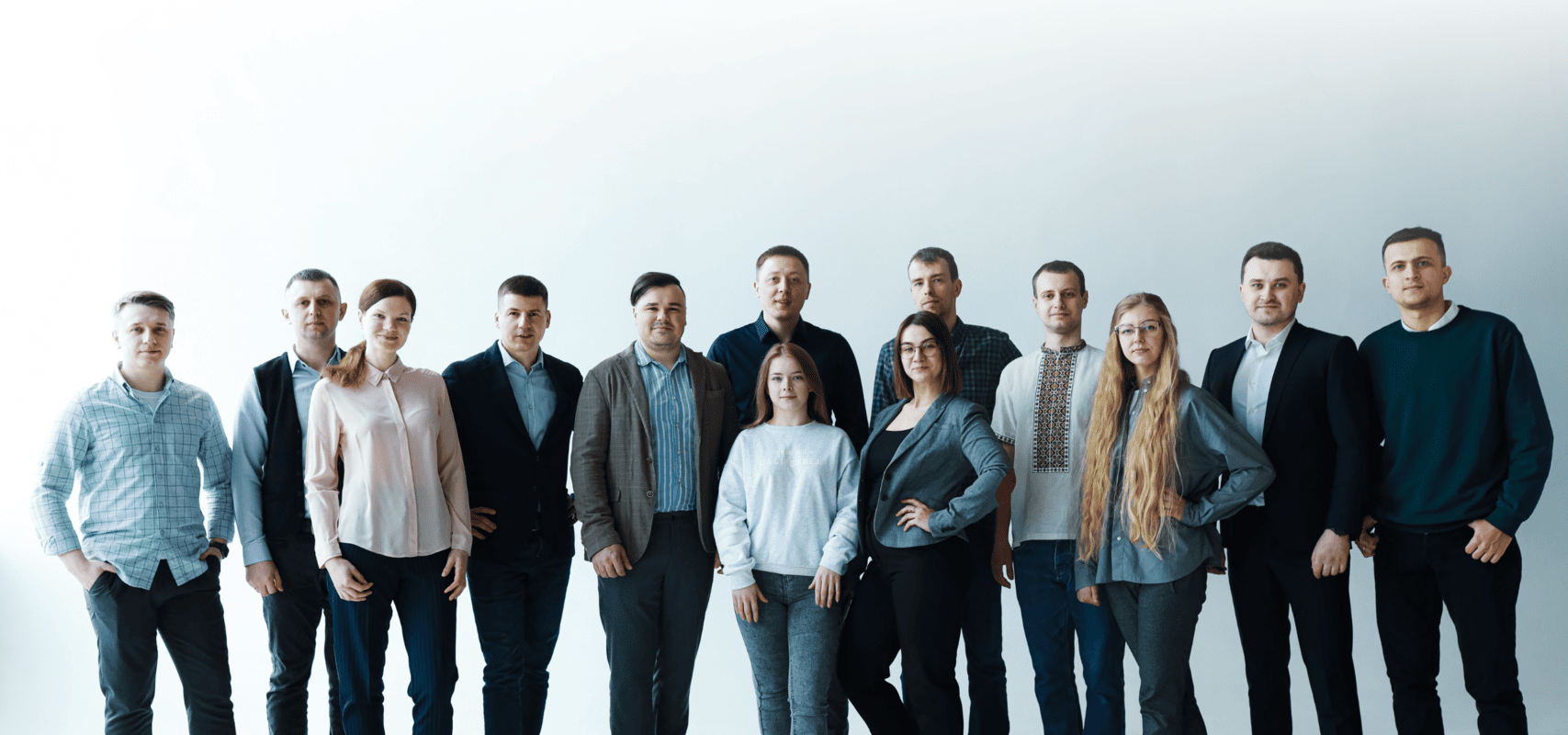The Internet of things is increasingly conquering new industries, and the medical world is not an exception. It changes the interactions between doctors and patients, access to real-time data, and the way people can monitor their health and treatment process. IoT technology implementation is a gradual and complicated process. It takes over many processes in organizing the work of the hospitals, empowers the branches of healthcare and medical science as neuroscience and mental healthcare, and gives new opportunities to surgery. All these changes lead to the overall improvements and have clear benefits for healthcare institutions and organizations.
The Topical Issues of the Healthcare Industry in 2020

In the 2023 Global Health Care Outlook, Deloitte assesses its current state and highlights the five core challenges the industry faces today. Let’s explore them one by one.
Workforce
The COVID-19 pandemic has aggravated workforce issues in the industry. There’s a growing demand for nurses globally due to labor shortages. At the same time, healthcare workers face problems like heavy workloads, low pay, and burnout. By 2030, the sector will need 80 million more employees, with many required in developing countries. However, many healthcare specialists are about to cut their hours or leave their professions.
Virtual Health Delivery
The COVID-19 pandemic has sped up the adoption of virtual health delivery. This aims to improve care, cut costs, and tackle broader healthcare issues, from equity to a lack of workforce. Virtual health offers extra flexibility. Hence, patients and providers can choose in-person or at-home care. Although this is a technology-driven transformation that maintains the human touch in care requires collaboration between healthcare professionals and patients. Yet, despite all its benefits, keeping the privacy and security of all the patient information is quite a challenge for virtual health app providers. Hence, they need to make an extra effort to ensure the system works securely.
Digital Transformation
Amid the pandemic, we saw a surge in people requiring medical help. This created a double challenge — a shortage of healthcare workers and difficulty purchasing medical supplies. Providers began using telemedicine and EHR to address these concerns. These tools are expected to help the industry become more efficient, cost-saving, and prepared for global health emergencies.
Health Equity
In 2023, there are still healthcare inequalities influenced by age, income, and living place. For now, over 2 billion people are struggling because of limited access to essential medicines. This problem can influence life expectancy. Moreover, vulnerable communities are often at risk of environmental hazards and limited healthcare. The COVID-19 pandemic highlighted that health inequalities must be addressed through coordinated efforts and policy changes.
Sustainability
Climate change is a threat to global health as it endangers clean air, water, food, and shelter. Moreover, rising temperatures expose millions to extreme heat. Climate change also causes worse health issues because of increased droughts, wildfires, and air pollution. Over 90% of the world’s population is expected to be affected. Hence, health services will struggle with many patients. In the future, the World Health Organization predicts more deaths caused by undernutrition, malaria, diarrhea, and heat stress.
Empeek’s Team of Experts Is Ready to Help You to Take Your Business to the Next Level
Contact UsNew Branches of Healthcare and Medical Science that Evolve Due to IoT

There are branches of science that depend on technology. Neuroscience is one of them. Its comprehensive approach to studying brain activity and the nervous system’s connection with the human body is possible due to modern ways to trace and monitor brain and body signals. IoT equipment is making a valuable contribution to the field by providing scientists with smart connected medical devices. Clinical trials become more precious due to the possibility of real-time monitoring of the patient’s status. The research results become more reliable and contribute to evidence-based medicine.
Neuroscience clearly shows the processes and patterns people could only assume before its emergence. By giving proof of mental symptoms, it helps in the diagnostics of psychiatric and neurological diseases. The Internet of Things in healthcare and security devices enhance brain surgery opportunities and give a chance to many people with chronic diseases that had been supposed to be untreatable. The main benefits of IoT in neuroscience and mental health care for doctors are new reliable and convenient treatment opportunities, more qualitative care and support for the patients, and better outcomes.
The Benefits of Vital Signs Continuous Monitoring
One of the acute issues of healthcare today is connected with the workload of nurses. The measurement and reporting of the vital signs of hospitalized patients is their responsibility and takes lots of time and effort. Modern wearable IoT solutions take over this routine and let the doctors access the information about the patient’s status at any time.
For example, the Medical IoT platform by Empeek enables the monitoring of various health parameters. It automatically reports heart rate fluctuations, blood pressure or blood sugar spikes, etc. 5 connected systems, including the device and the apps for data interpretation and transfer, form the solution that simultaneously enables treating many patients.
Useful for small clinics and large hospitals, the solutions of such type help in growing the medical business and give the clinic owners the advantage of streamlining the supportive care. Healthcare providers also benefit from having real-time health systems that provide access to all the patient data. And the patients can be sure that the decisions about the treatment will be made timely due to automatically informing the therapists.
Cutting-Edge IoT Solutions and How They Work
Let’s consider a few examples of top IoT solutions in healthcare and the benefits of healthcare IoT software.
- Apps for monitoring the patient’s status during cancer treatment. Actually, they aren’t “solutions for cancer treatment” in the full sense, but the wearable devices, together with the app, keep track of the patient’s symptoms and responses to treatment and regularly send the data to the doctor. As a cancer treatment plan needs an individual approach and constant monitoring of the changes, medical IoT software development impact the overall quality of medical support in the field.
- Diabetes treatment support: smart devices for continuous glucose monitoring and automated insulin delivery. Smart glucose control isn’t new; the solutions for this purpose were introduced more than 20 years ago. But smart insulin pens are one of the top novelties. They measure and control the insulin dose injected at a time, and recommend corrections to the patient when needed. And automated insulin delivery systems completely change the lives of people with diabetes. After measuring glucose level and analyzing it during the daytime, they enable preventive insulin injections for keeping glucose level safe and stable.
- Сonnected inhalers. The issue of adherence to treatment and medication dosage tracking is essential for determining the treatment’s efficiency. In the context of chronic diseases like asthma, the treatment can last for a lifetime, so its quality and accordance with the current patient’s condition are crucial. The sensor is attached to an inhaler or spirometer and works with a mobile application. The whole solution makes taking medications more consistent and helps doctors develop better strategies for medical support.
- Smart contact lenses. There can be different purposes of IoT implementation here, and only one kind of lenses has already been approved for sale. The solution tracks a patient’s eye dimensions that can be the first symptoms of glaucoma.
- Ingestible sensors. They also help to monitor the patients in their following medical instructions. The field of application is not only chronic diseases but also mental illnesses or uncontrolled hypertension treatment.
These solutions illustrate the main advantages of IoT implementation: better treatment management, more precious and timely measurement of important indicators, the ability to trace the smallest changes and symptoms for timely diagnostics.
Jumpstart Your Project With Empeek
Contact UsThe Future of Healthcare Industry Empowered By IoT Technology
Taking care of one’s health by oneself can become real due to sensor-based wearables. A person will be able to check many parameters and send the measurement to the physician before the visit. Many reasons in the modern world cause the need for remote patient communication. And it is going to be satisfied by different means of medical technology including telehealth and connected devices. Monitoring basic parameters, tracking sleep and physical activity, and sensors for temperature and chemical analysis will become almost must-have for people with a cautious attitude to their health. The solutions will help indicate the first symptoms in healthy people and prevent the possible danger in people with chronic diseases. Eliminating human errors in the process of measurements is another remarkable advantage.
And the doctors will get the ability to prioritize scheduled appointments, keep track of taking medications, and overall the treatment plan execution. Remorse consulting will lead to a decrease in the frequency of visits to the clinic. More consistent work of every healthcare professional in the clinic will lead to enhanced patient experience and growing the clinics’ revenue. Thus, the benefits of iot in healthcare for doctors and medical business owners are apparent.
The experts also admit these advantages. Lord Paul Drayson, in an exclusive interview to Internet of Business, says: “The healthcare sector is becoming more aware of the benefits of implementing IoT networks, which is fuelling this rapid growth. There’s an economic benefit to healthcare providers; locations for patient care can implement monitoring systems that allow better management of free beds. There’s also the benefit to the patients themselves. Healthcare providers can offer a better level of care by utilizing the latest technologies available to them.”
IoT Technology as a Smart Investment
Reducing the workload of medical staff by routine automation is not the only contribution IoT makes into the cost-efficiency of medical institutions. Preventive healthcare is getting new possibilities due to technology implementation. This branch of the internet of things in healthcare is very prospective. By changing the quality of people’s health and lifestyle to better, preventive strategies beneficially impact the overall economic situation.
The reduced need for hospitalization is another way of cutting costs. And it is also enabled by continuous monitoring of IoT systems. We should also mention that IoT solutions are mostly low-power and energy-saving. This feature makes them environment-friendly and cost-efficient. Although creating custom and complex IoT solutions is not cheap, it is a smart investment that effectively leads to further improvements and savings, and the clinic’s becoming modern and prosperous.
This article was updated on October 26, 2023.








